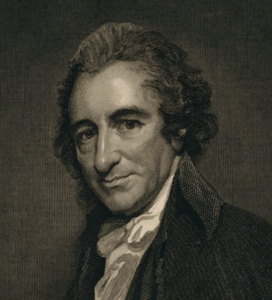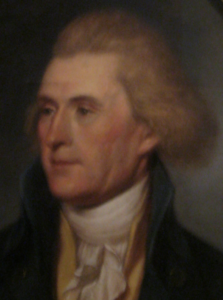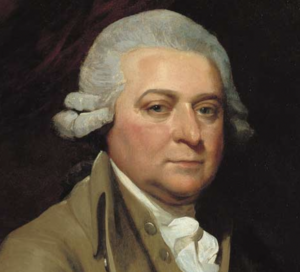The Revolutionary era was the most creative period of constitutionalism in American history and one of the most creative in modern Western history. During the five or six decades between the early 1760s and the early nineteenth century, Americans debated and explored all aspects of politics and constitution-making –the nature of power and liberty, the differing ideas of representation, the importance of rights, the division of authority between different spheres of government or federalism, the doctrine of sovereignty, the limits of judicial authority, and the significance of written constitutions. There was scarcely an issue of politics and constitutionalism that eighteenth-century Americans didn’t touch upon. –Gordon Wood, Power and Liberty (2021), p. 2
Imperial Debate
Discussion Questions
- What was the difference between the British (and Whiggish) view of “virtual representation” and the American (or revolutionary) view of “actual representation”?
- Where did the American colonial leaders want their sovereignty to rest within the British empire? How did their views evolve, and where did they sometimes disagree with each other?
The Colonial Crisis: A Timeline of Documents
- 1763 Royal Proclamation
- 1764 Sugar Act // Currency Act
- 1765 Stamp Act // Sons of Liberty
- 1765 Thomas Whately’s defense of Stamp Act // Daniel Dulany’s response
- 1766 Benjamin Franklin’s testimony before the House of Commons
- 1766 Repeal of Stamp Act // Declaratory Act
- 1767 Townshend Duties // John Dickinson’s Letters
- 1769 William Knox’s defense of Parliamentary sovereignty
- 1770 Boston Massacre // Repeal of Townshend Duties (except tea)
- 1773 Relief for East India Company // Boston Tea Party
- 1774 Coercive or Intolerable Acts // First Continental Congress (Association)
- 1774 Thomas Jefferson’s “Summary View” pamphlet
- 1775 Lexington & Concord // Second Continental Congress
- 1776 Thomas Paine’s Common Sense // State constitutions
- 1776 Declaration of Independence
State Constitutions
Discussion Questions
- Why was a written constitution considered to be such a revolutionary development in the eighteenth century?
- What were some of the most significant innovations introduced by the various new state constitutions in the 1770s and 1780s?

“To those unenlightened conservatives who dare to ask, where is the king? tell them [wrote Thomas Paine in Common Sense] “in America THE LAW IS KING.'” (Wood, p. 1)

“In fact, said Thomas Jefferson in the spring of 1776, making the new state constitutions was ‘the whole object of the present controversy.'” (Wood, p. 33)

“[John] Adams had a vested interest in the state constitutions, for no one had been more important than he in influencing the structure and form of the new republics.” (Wood, p. 35)
Links to Revolutionary era state constitutions (via Avalon Project)
- Constitution of New Hampshire – January 5, 1776
- Constitution of South Carolina – March 26, 1776
- Virginia Declaration of Rights; June 12, 1776 (Constitution adopted June 29)
- Constitution of New Jersey; July 2, 1776
- Constitution of Delaware; September 10, 1776
- Constitution of Pennsylvania – September 28, 1776
- Constitution of Maryland; November 11, 1776
- Constitution of North Carolina; December 18, 1776
- Constitution of Georgia; February 5, 1777
- Constitution of New York; April 20, 1777
- Constitution of Vermont; July 8, 1777
- Constitution of South Carolina; March 19, 1778
- Constitution of Massachusetts; March 2, 1780
- Constitution of Vermont; July 4, 1786
